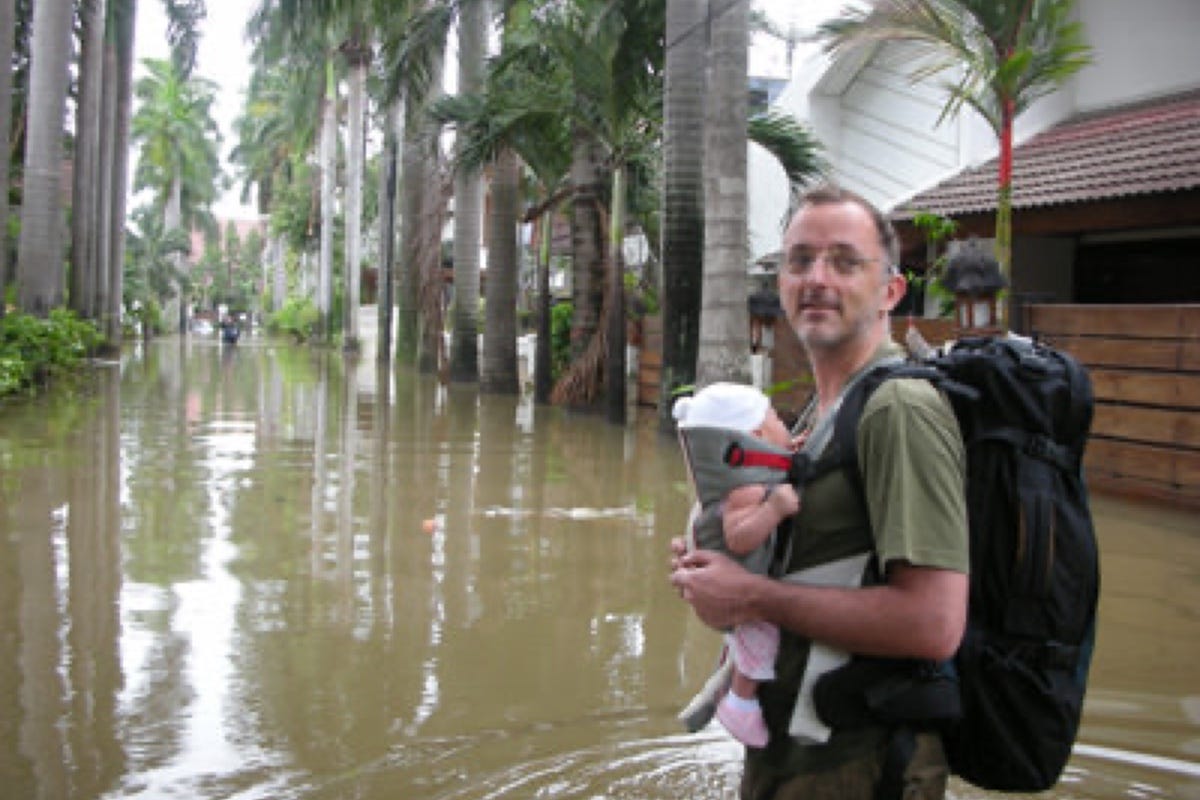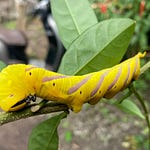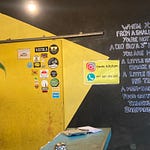If you’ve ever seen a baby learning to walk, the phrase “baby steps” will need no explanation. The baby starts off crawling, then, with wobbling not in short supply, takes their first steps. Then, more often than not, falls flat on their face. They do get up though, and try again, and again. Eventually, they walk, then run, then dance. Well, some never quite manage the last bit. And so it is with travel in the age of Covid19.
There’s been no shortage of attempts to walk, some doing better than others. There’s also been plenty of falling on one’s face. With babies though, there is always a parent or another, offering a guiding hand. Also, cheers and tears when the first steps happen.
Oh Jakarta. Photo: Samantha Brown.
With travel though, the helping hand takes a more curious form.
I read a story in the Indonesian outlet Tempo the other day, talking about Bali yet again trying its first steps. Quoting Tourism and Creative Economy Minister Sandiaga Uno the story read:
“Learning from the Phuket Sandbox which focuses on significantly curbing local transmission in Phuket can be later applied in Bali.”
It is true, there is no shortage of remedial learning material to come out of Phuket’s Sandbox. Curbing local Covid19 transmissions though, seems a curious one to highlight. As I’ve written before, the project threw public health under the wheels of a tourist minivan. Meanwhile, the Covid19 caseload on the island has skyrocketed. The day before the Sandbox launched, there was a cumulative total of 729 cases on Phuket. According to the Bangkok Post, the total accumulated cases are now 8,062. Only 95 have been tied to the Sandbox scheme and given there have been 33,095 arrivals, this is a good result. It isn’t clear though, how the Sandbox curbed Phuket’s infection rate.
Perhaps the Indonesian Tourism Minister was suggesting that Bali could learn what not to do. Phuket’s results are underwhelming to say the least—in part due to bodgy numbers from the TAT brains trust.
Not just yet. Photo: Stuart McDonald.
Regular readers will know I’m a fan of the Southeast Asia Travel Show podcasts by Hannah Pearson and Gary Bowerman. Their most recent show was one of my favourites. They sat down with Bangkok-based travel writer Vincent Vichit-Vadakan for a chat about Thailand. Go listen to it now—I’ll wait.
In the interview, Vincent notes that of the 30,000-odd international arrivals into the Sandbox, at least half, if not more, were locals or foreign residents. While these people might enjoy a beach break before heading home, they’re not tourists. When the Tourism Authority of Thailand suggests they are, all they’re doing is layering false hope for other destinations, in or outside Thailand.
Not surprisingly, small local businesses do not appear to be thriving. Writes The Pattaya News:
“Local shop owners and entrepreneurs in Phuket mutually agreed that the Phuket Sandbox, a program to attract foreign vaccinated tourists, did not help domestic tourism and small business owners since it first launched in July.”
If it walks like a duck, it is most likely a duck. If it walks like a returning ex-pat who lives in Bangkok, chances are it doesn’t walk as a regular tourist would. Small business owners don’t sound happy. From the same story, this bit jumped out at me:
“Some big and powerful businesses and resorts may get some benefits from the sandbox, but not us.”
As I’ve written before, a considerable impetus behind the Sandbox was big business pushing for it. It isn’t outrageous to see similar pressure behind moves in Indonesia’s Bali, and Vietnam’s Phu Quoc Island.
Bai Sao, Phu Quoc. I hate to think how it has changed. Photo: Stuart McDonald.
Take this, from Vietnam Express—it doesn’t sound like budget travel is in Vietnam Tourism’s scope:
“Under a six-month trial program, 2,000-3,000 tourists will come every month by charter flight in the first three months, and stay in sequestered resorts and limited areas. ... Hotels are required to have a separate area for the international tourists besides isolated testing and quarantine areas.”
Meanwhile, in Bali, we had a minister suggesting Bali didn’t want backpackers. This was later clarified, with his spokesperson saying the Minister didn’t mean what he said. Underlying his comment though was a focus on “quality tourists”—a euphemism for wealthy people—and increasingly common language from tourism boards and government ministers across the region. That Nusa Dua—a luxury enclave in South Bali is one of the areas posited for an early opening, is not a coincidence. Here’s a typical deal: “Worry gone in the Nusa Dua green zone” from the Marriott Courtyard
Regardless of what gets re-opened when, the question remains, if it comes with strings, who will go for it? The answer seems to be “not many travellers”.
Putting the “little people” first. Signage somewhere in Nusa Dua. Photo: Stuart McDonald.
On Ko Samui, matters are already being rejigged, says Ratchaporn Poolsawadee, president of the Tourism Association of Koh Samui:
“The programme that started on July 15 did not produce fruitful results," Mr Ratchaporn said. "We need a makeover to become a quarantine-free destination with fewer restrictions to attract more demand and let more tourism operators benefit from the reopening.”
Phuket’s rules have changed so often I’ve lost count and yet still, demand is tepid at best. Speaking generally, but mentioning Phuket on the Southeast Asia Travel Show podcast, Vincent says:
“I don’t see international coming back this year, it is just too complicated, especially if there is any sort of quarantine restriction when you arrive at a place, even moreso when you come back. There are places that I could go but if it means two weeks in a hotel room at worst, or at best two weeks in Phuket it’s a lot of time. It is a huge time commitment.”
Quarantine, regardless of if in the destination or the home country, remains the logjam. Until vaccination levels improve considerably, no country concerned about public health should remove it.
Take the right leap. Lyla at Desa Seni, Bali. Photo: Stuart McDonald.
This brings me to the title of this post—the wrong baby steps.
If there is something to really be learned from the Phuket Sandbox it is that countries should choose domestic tourism as their first baby steps. Inbound big business and its billionaires may whine, but inbound tourism comes from a quarantine-tainted chalice. Questions about vaccine passports and acceptance further muddy the waters. Few travellers want or can afford the time for two to four weeks of quarantine for a holiday. The people who can afford the time—backpackers—are inexplicably out of favour with destinations in the region. As I’ve asked before, what is with the hating on backpackers?
Instead, destinations like Bali, which I’ve argued previously is perched upon a precipice of decay, presents a scrap metal jet on an undeveloped cliff as a new tourism icon. Give me a triple of irony, please. Chasing higher-paying foreigners, who for many of the above reasons—and more—by and large, don’t come, is a fool’s errand. One of the arguments made for Phuket was that the island wasn’t popular with Thais, so foreigners were the only market worth chasing. I never bought that, but in both Phu Quoc and Bali, the largest market, by far, of any single nationality, has always been domestic travellers.
Let me tell you where you can jam that scrap metal jet. Nyang Nyang Beach. Photo: Stuart McDonald.
Nations such as Indonesia, Malaysia, Thailand and Vietnam all have well-sized middle classes. Middle classes who want to travel. Middle classes who are already in the country. Middle classes who are increasingly vaccinated.
Once they are, let them. The foreigners? Let them come a little further down the track.
Couchfish is 100 per cent independent and reader-supported. If you’re not already a subscriber, and you’d like to show your support, become a paying subscriber today for just US$7 per month—you can find out more about Couchfish here—or simply share this story with a friend. Thank you!




















Share this post